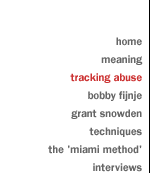 |
 |  |
 |  |
 |  | 
In the 1980s, child advocates, parents and politicians responded to the
emergence of highly-publicized day-care molestation cases with swift
legislative resolve.
In Florida, says former Dade County prosecutor David Markus, "child sexual
abuse became a hot political topic in the legislature. And as a result, a lot
of laws were passed, making it easier for a prosecutor to get a conviction in
the sexual battery case. Among them, restrictions on the right of defense
attorneys to depose children, an expansion of allowable hearsay in sexual
battery cases, an expansion of allowable other crimes evidence in sexual
battery cases. In that sense it was a political children's crusade by
legislators running for office, and seeing who can be the toughest on this
issue."
Other states reacted similarly, changing laws to more readily accommodate the
testimony of children. According to a Memphis Commercial Appeal series
in 1988, state legislative reforms during that decade included:
 | 33 states that had allowed children's testimony to be video-taped or
presented in court via closed-circuit television |  |
 | 27 states that had expanded traditional "hearsay" exceptions to allow
parents to testify about the statements of their children |  |
 | 22 states that had dropped the age guidelines that determine how old a witness
need be to be presumed competent to testify |  |
 | all 50 states had rescinded requirements that children's testimony be
corroborated by adult testimony or physical evidence |  |
 |  |  |
 |

home .
meaning .
tracking abuse .
bobby fijnje .
grant snowden .
techniques .
the miami method .
interviews
join the discussion .
synopsis .
press .
tapes & transcripts .
frontline online .
pbs online
web site copyright WGBH educational foundation
|